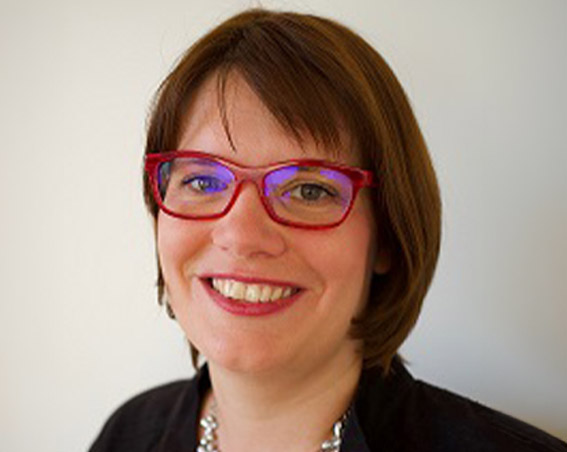FROM RAINFOREST TO COSMETIC: BERACA’S SUSTAINABLE VALUE CHAIN
The majestic Amazon, a jewel of our tropical biomes, is home to an astonishing diversity that includes some 14,000 plant species. This biodiversity represents not just environmental wealth, but also economic opportunities if sourced sustainably and ethically. Recognizing the Amazon's bounty, Clariant acquired Beraca in 2021 to responsibly tap into the region's natural ingredients. Beraca created the Sociobiodiversity Enhancement Program in 2000 and established itself as a pioneer in ethically sourcing renewable ingredients from the Brazilian biodiversity while providing several positive benefits for local communities. Through the acquisition, Clariant gained access to Beraca's expertise in working directly with cooperatives of family farmers, extractivists, riverside people, quilombola and indigenous communities across the Amazon. This allows the company to source high-quality plant-based ingredients like açai, cupuaçu, and andiroba oils in a way that conserves the rainforest, supports local livelihoods, and meets stringent ethical sourcing standards.
The organic açai value chain exemplifies how this acquisition unlocks the potential of the Amazon's biodiversity. Açai, the emblematic fruit of this region, is consumed devotedly in Brazil and beyond. Açaí berries are a powerful source of antioxidants, making them valuable for developing natural ingredients for sustainable cosmetics. From them, Clariant develops a variety of oils, actives and exfoliants. In addition, it works in close collaboration with communities in Brazil to responsibly obtain açaí fruits from the Amazon rainforest.
To ethically obtain açai berries from the Amazon, Clariant pursued and reinforced the partnerships that Beraca forged directly with cooperatives of extractivists in the region. These cooperatives are made up of small producers who have sustainably harvested açai for generations, helping to conserve the rainforest. By working closely with them, Clariant ensures full traceability of the açai supply chain from the forests to its production facilities, located near the harvest area in Ananindeua, in the state of Pará. There, the raw material is transformed into the precious açaí oil.
One of these cooperatives that Clariant partners with is AMPRUNAM (Association of residents and rural producers of Nazarezinho do Rio Meruú), an association of local rural producers. It was founded in 1991 as a pioneer in the legal organization dedicated to açaí in the municipality of Igarapé-Miri, known as the "World Capital of Açaí". AMPRUNAM mainly sells to the food industry sector, but also to the cosmetic industry, with a guaranteed and adequate purchase price, defined in advance. The association with Beraca began in 2009, with the sale of açaí, opening doors for the supply of other species and was subsequently adopted by Clariant. It offers Beraca organic açaí, responsibly harvested from the Amazon rainforest. Asked on the partnership with Clariant / Beraca, its former president, Tadeu de Melo, said: "Beraca expanded our vision, presenting us with a new reality and suggesting management structures and practices to guarantee a quality product. The company also taught us the value of organic production and, through the alliance we have with it, we learned more about the processes of the açaí market. In addition to the alliance, Beraca encourages us through training, development of local projects and fair pricing practices to help producers. It doesn't just buy the raw material and leave; it values our work and recognizes its importance".
The collaboration with AMPRUNAM and açai is also done similarly with other communities that collect different species from the Amazon. All these partnerships provide a complemental source of income that is particularly important for the communities involved. Clariant pays an adequate for the products, creating a stable source of income for farmers. This incentivizes them to continue protecting the rainforest rather than clearing land for alternative livelihoods. The company further supports the communities through capacity building, helping optimize sustainable harvesting techniques and implementing quality control measures.
Considering the production process of açai-based products, the factory is fully dedicated to processing açaí during the harvest season. As it is a very delicate fruit, it is very important to act quickly to prevent it from spoiling. When the product arrives at the factory, it is evaluated by the quality control team, approved and then goes for extraction. The oil undergoes a quality analysis before being refined, then bottled and sent as a final product to our customers around the world.
Once the açaí oil has been extracted from the pulp, it undergoes quality evaluation processes. In addition to Clariant's commitment to ethical acquisition and close collaboration with local farmers and communities, seeking a sustainable supply chain, the goal of not generating waste is extremely important. Clariant seeks to make the most of the açaí raw material. The vegetable oil is extracted from the pulp and from the presscake of this extraction are produced natural exfoliants. All these activities incorporate reuse and zero waste practices.
From the harvesting of the fruit to the final product, we monitor every step, ensuring we maintain strict quality control of the raw material, from its reception to the exit of the factory. "This involves internal certification processes, focused on good manufacturing practices, ensuring that the entire production process is effective and safe," highlights Karla Magnago, Quality Control Coordinator at Beraca.
Experts
Panelists
References and notes
- https://www.bbc.co.uk/news/world-middle-east-68172560
- Cosmetics Business Stand Side with Mintel at in-cosmetics Global 2024 https://www.youtube.com/watch?v=l9x2nfI2peQ&t=66s





























